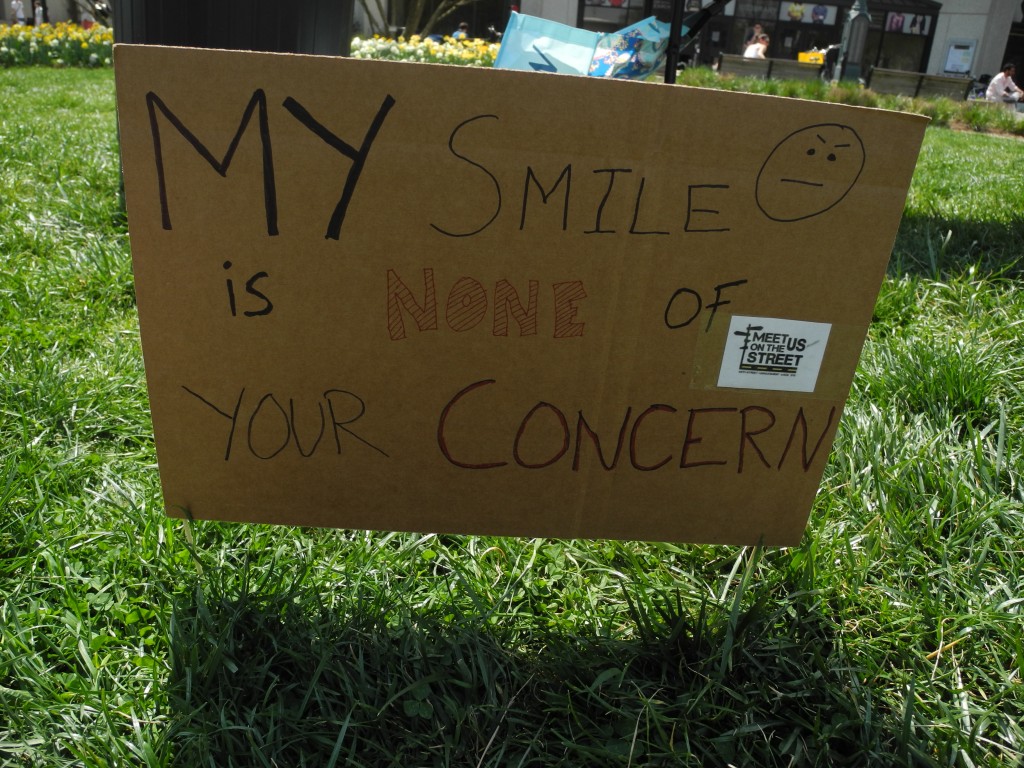Alicia Wallace, Nassau, The Bahamas, Blog Correspondent
The people of The Bahamas have recently come to terms with the fact that a new festival is being brought to the country. While it is the source of great debate, a Trinidad-inspired carnival will take place in May 2015 to the dismay of many loyal practitioners and fans of the Bahamian Junkanoo parade. In impassioned exchanges on the topic of Bahamas Junkanoo Carnival – a name meant to appease Junkanooers – much of the focus is put on the women of The Bahamas and the costumes designed for them to wear.
The Bahamas Christian Council, as expected, made bold, sweeping statements about the festival, zeroing in on the “immodest costumes” and the sexual violence they would inspire. Dr. Ranford Patterson said, “We are of the view that the promotion of immodest costumes, such as those displayed for use in the upcoming Bahamas Junkanoo Carnival, will not only promote promiscuity, but fornication, rape, incest, and other sins of the flesh as well.”
As Director of Hollaback! Bahamas, I have serious concerns about carnival, especially given the high rate of street harassment experienced here. Those concerns, however, do not outweigh or erase the right every woman has to participate in the festival, free of judgment, shame, and acts of sexual violence.
Dr. Ranford Patterson does not seem to have taken the time or council necessary to consider the dangers of his statement. He has made assumptions which are now, quite likely, born by many others who under his – and the Bahamas Christian Council’s – influence. It is unfortunate that people in positions of power rarely recognize the responsibility that accompanies influence.
The statement made on behalf of the Bahamas Christian Council is problematic on many levels. There is far too much to address at once, so let’s focus on the views on rape presented.
The statement suggests that rape is sex or, at the very least, is about sex. It is shocking and disappointing that sex and rape are still being confused. Far too often we see newspaper articles referring to statutory rape as “sex with a minor”. Far too often we see rape being called “unlawful sex”. It is unclear whether this is due to a fear of the word, or discomfort with the truth that lies within it.
The difference between sex and rape is clear. Sex requires consent while rape is a violation. Rape is about power and control – not sexual desire.
Dr. Ranford Patterson played the blame game in his statement. He suggested that victims are at fault, and perpetrators are helpless beings. He is completely misguided, perpetuating the myth that acts of sexual violence are caused by clothing, or lack thereof.
Rape has never been caused by physical environments, music, dancing, or costumes. The only common denominator in cases of rape is the rapist. It is, therefore, crystal clear, that the only entity guilty of rape is the rapist.
The Bahamas Christian Council’s statement is misleading as it suggests the blame for rape should rest with the victim based on the choices made by the victim. As a body with tremendous power and influence, it should recognize its responsibility and the necessity of making consultations and seeking the advice of experts before making public statements. The burden is now on civic organizations to repair the damage done by the Bahamas Christian Council. It is our duty to ensure that:
– Sexual assault victims are not blamed
– The distinction is made between sex and rape
– Bahamas Junkanoo Carnival is not used as a scapegoat for acts of sexual violence
– The free will and ability to make decisions of perpetrators is recognized
– Women have the rights to dress as they wish
– Women have the right to participate in festivals without the threat of sexual assault
– Women have the right to participate in festivals, free of the idea that they are “asking for it”
As Bahamas Junkanoo Carnival – scheduled for May – draws near, Hollaback! Bahamas will be active and vocal in the community. The Bahamian people must be educated on consent and body autonomy. We cannot allow organizations to spew ignorance, hatred, or unfounded claims under the guise of morality. Our people must have the freedom to dress, move, and participate in festivals as they see fit. No door should be shut on a woman because of her sex, and no perpetrator should slip into the shadows because the spotlight is trained on a woman’s costume. We will not be silent. As educated people with clear understanding of the issues at hand, we must not allow our voices to be drowned out by the less enlightened. As their voices rise, so shall ours, in greater than equal measure.
Alicia is a freelance writer and public educator in Nassau, Bahamas. You can connect with her on Twitter (@_AliciaAudrey and on her blog.




